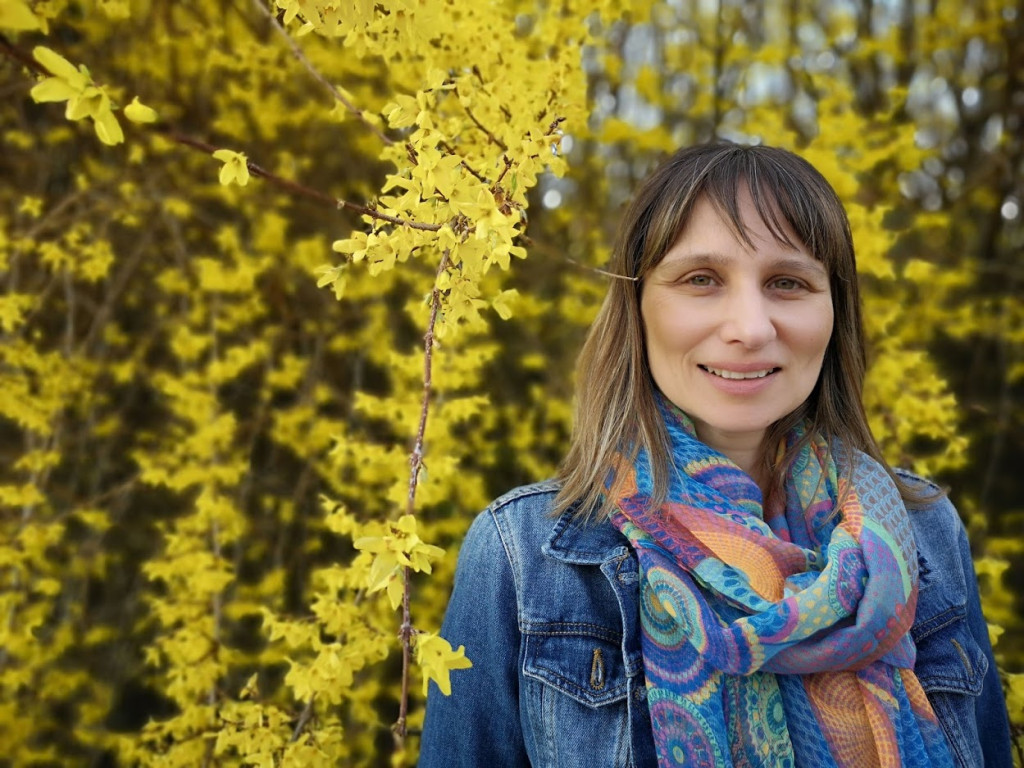Storytelling is a powerful way to connect with other people, look deep inside our soul and heal. It is often used in our classrooms to help students embrace their creativity and imagine themselves beyond this reality. Here are five mindful techniques which will enable your students to unleash their creative mojo.
• Use a visualisation and then let the student’s mind wander off
It’s summer time, so let’s take a shortcut to the beach with this creative visualisation.
After you play the visualisation, ask the students to prepare a story about a fond memory they have from being on a beach with their family or friends. Explain that they need to express their feelings clearly and also describe what they heard, smelled, tasted and saw there.
• Use a mindful walk
Have you noticed that every time you take your students outside all of you feel more relaxed and joyful? This time I would encourage you to take a mindful walk which will end with a writing activity.
Take the students to the nearest park for your next class. Inform them they will need only a pen and paper, where they have to write down five sounds they hear, five smells, five plants they see and five surfaces they feel, for example they can touch the grass, the surface of the bark of different trees and five feelings they go through.
Before you let the students walk around, gather them and ask them to close their eyes and take five deep breaths. After this short breathing activity, tell them they have 10 minutes to walk around mindfully and take notes.
Once the time is up, get together and ask them to tell you some of the things they have written down.
Now it is time to get creative. Give your students twenty minutes or more if possible to write a story about their mindful walk including at least three words from each category. Remind them to describe the emotions they went through.
Make sure that all mobiles have been turned off.
• Using personification.
Preparation:
Ask the students to bring an object from home for your next lesson- it could be a teddy bear, a Lego brick, a ball of string, a clothes peg, a piece of cotton, a cup, an eraser, etc. The more unusual, the better. You could also bring a few objects so that you have a wider choice.
At the beginning of the next lesson, collect all the items and spread them on your desk. Invite each student to come out and take one. Then tell the students to close their eyes and try to connect with the object. Ask them to ponder on these questions:
How does the object feel? Is it soft or rough?
What materials is it made from?
Does it have a particular smell?
If this object was a person, what personality traits would it have?
If the object could speak, what voice would it have? Would it be male or female?
What language would it speak?
Then ask the students to open their eyes and write the object’s story. It could be any genre- humorous, romantic, tragedy. Remind them to keep connecting with the object by holding it.
• Using an envelope with a smell
I heard this idea on the local radio station Academy FM, Folkestone and really liked it. Here it is:
Preparation: Inform the students that the following class they’ll do a writing activity and for the purpose of the lesson they need to bring an envelope which has a hidden smell, e.g. a scented object. Give them some examples- a pinch of spice (cinnamon, pepper, paprika, cardamom, crashed garlic, ground cumin, ground ginger, oregano, lavender, etc.), a tea bag, sprinkle in a little bit of washing detergent, spray it with your favourite perfume.
If I were you, I’d prepare a few extra envelopes in case a student has forgotten to bring one.
In class: Mix up all the envelopes. Then hand one to each student making sure they don’t receive their own. Ask the pupils to smell the envelope without opening it and think of these questions:
*What could be the smell?
* Where does the smell take you?
*Does it bring a certain memory?
*What people are involved in that memory?
*What sensations are you feeling?
*Can you touch what is inside the envelope? How does it feel?
Then invite the students to write a personal or imaginary story inspired by this smell.
• Down memory lane
Tell your students that they have to imagine they have invited someone for the first time into their home and want to show them a special place /object they are really proud of. You could give an example by saying what thing or place you are proud of. Personally speaking, I´ve got a shelf where I keep my students´ gifts and cards.
Give your students a few minutes to think and take notes. Then put them in pairs and ask them to describe this place/object to their partner by telling a story.
Happy mindful storytelling
Marusya Price

I am an English teacher, blogger and resource creator. I am also interested in Applied Positive Psychology and how it could be used by educators to empower their students. The lesson plans and visualizations that I create explore topics such as happiness, mindfulness, motivation, and compassion, to name but a few. You can find more information about my work on my website: https://www.inspirationalenglish.co.uk/
Source: 5 techniques to merge Storytelling and Mindfulness – Thrive Global













